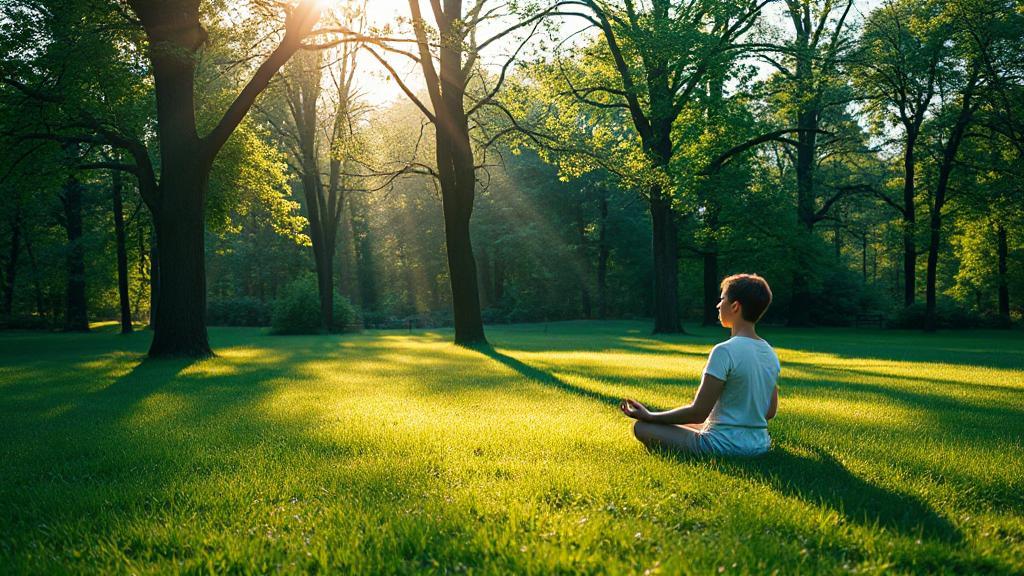Understanding Anxiety in Modern Life
Anxiety is a natural response to stress, but in today’s fast-paced, hyper-connected world, it often becomes a persistent companion. According to the World Health Organization, nearly 300 million people globally are affected by anxiety disorders. While occasional anxiety is normal, chronic symptoms can interfere with daily life and may require professional support. Fortunately, there are a variety of natural, evidence-based strategies to help reduce anxiety and promote calmness.
The Mind-Body Connection: Mindfulness, Meditation, and Breathwork
Mindfulness and Meditation
Mindfulness involves focusing on the present moment and accepting thoughts and feelings without judgment. Regular mindfulness practice has been shown to reduce stress, improve emotional regulation, and decrease anxiety. Meditation, a formal practice of mindfulness, can change brain structures associated with stress and anxiety, such as the amygdala. For beginners, guided meditations from platforms like Headspace and Calm can be helpful. If you’re new to meditation, check out A beginner’s guide to meditation: How to get started and build a practice.
A simple 5-minute meditation:
- Sit comfortably with your back straight.
- Focus on your natural breathing.
- When your mind wanders, gently return focus to your breath.
- Continue for 5 minutes, gradually increasing duration as you become comfortable.
Breathing Techniques
Controlled breathing can quickly activate your body’s relaxation response. The 4-7-8 breathing technique is particularly effective:
- Inhale quietly through your nose for 4 seconds.
- Hold your breath for 7 seconds.
- Exhale completely through your mouth for 8 seconds.
- Repeat 3-4 times.
Other techniques, such as box breathing and diaphragmatic breathing, can also help. For more, see Effective ways to relieve stress quickly.
Progressive Muscle Relaxation
This technique involves tensing and then releasing different muscle groups, helping you recognize and control physical tension. It’s a practical way to reduce the physical symptoms of anxiety.
Movement as Medicine: Exercise and Yoga
Physical Activity
Exercise is a powerful natural anxiety reliever. Aerobic activities like walking, jogging, swimming, or cycling release endorphins, the body’s natural mood elevators. Even 15-30 minutes of moderate exercise most days can make a difference. Yoga, which combines movement, breathwork, and mindfulness, is especially effective for anxiety relief. Beginner-friendly poses include Child’s Pose, Legs Up the Wall, and Corpse Pose.
For more on staying focused and active, see How to stay focused when distractions take over.
Walking Meditation
Combining mindfulness with gentle movement, walking meditation involves walking slowly and focusing on each step and breath, observing your surroundings without judgment.
Nutritional Approaches: Foods and Supplements for Calm
What you eat can profoundly affect your mental state. A balanced diet rich in whole foods, lean proteins, healthy fats, and plenty of fruits and vegetables supports mental well-being. Certain foods are particularly beneficial:
Equally important is what to avoid: excessive caffeine, alcohol, and refined sugars can trigger or worsen anxiety symptoms. For more, see Top supplements for managing anxiety symptoms.
Herbal Remedies and Supplements
Several natural supplements have shown promise for anxiety reduction:
- Ashwagandha: An adaptogenic herb that helps the body resist stress.
- Valerian root: May improve sleep quality and reduce anxiety.
- Magnesium: Deficiency is linked to increased anxiety and stress.
- L-theanine: Found in green tea, promotes relaxation without drowsiness.
Always consult with a healthcare provider before starting any supplement regimen, especially if you’re taking medications.
Lifestyle Adjustments for Lasting Calm
Prioritize Sleep Hygiene
Poor sleep can worsen anxiety, and anxiety can disrupt sleep. Tips for better sleep include:
- Stick to a consistent sleep schedule.
- Avoid screens at least an hour before bed.
- Create a relaxing bedtime routine (reading, gentle stretching).
- Keep your bedroom cool, dark, and quiet.
For more, see Effective strategies to naturally reduce cortisol levels.
Connect with Nature
Spending time in natural settings reduces cortisol levels and improves mood. Activities like hiking, gardening, or simply sitting in a park can have a calming effect. Even having plants indoors can be beneficial. Learn more about making the most of downtime in How to make the most of doing nothing for relaxation and mental health.
Foster Social Connections
Strong social connections buffer against anxiety. Talk to friends or family, join a support group, or volunteer in your community. Even virtual connections can help maintain a sense of belonging.
Engage in Creative Outlets and Hobbies
Creative activities like art, music, journaling, or gardening can help shift focus away from anxious thoughts and provide a sense of accomplishment.
Mindful Media Consumption
Limit exposure to negative news and social media, which can heighten anxiety. Set boundaries for screen time and take regular digital detoxes. For more, see Effective strategies to improve mental clarity.
Creating a Calming Environment
Your surroundings impact your mental state. Declutter, use calming colors, and incorporate plants to create a peaceful space. Designate tech-free zones and set specific times to check emails and social media.
When to Seek Professional Help
Natural approaches can be powerful tools for managing mild to moderate anxiety. However, if anxiety significantly impacts your daily functioning or causes distress, seek guidance from a mental health professional. For specific situations, such as pregnancy or chronic pain, see Effective strategies for managing stress during pregnancy and Effective strategies for managing chronic pain.
A Holistic Path to Calmness
Reducing anxiety and promoting calmness naturally involves nurturing your mind, body, and spirit through consistent, mindful practices. Experiment with these strategies to discover what works best for you. Remember, seeking help is a sign of strength, and calmness is within reach for everyone. For further reading, explore The benefits of mindfulness meditation for mental and physical well-being.
